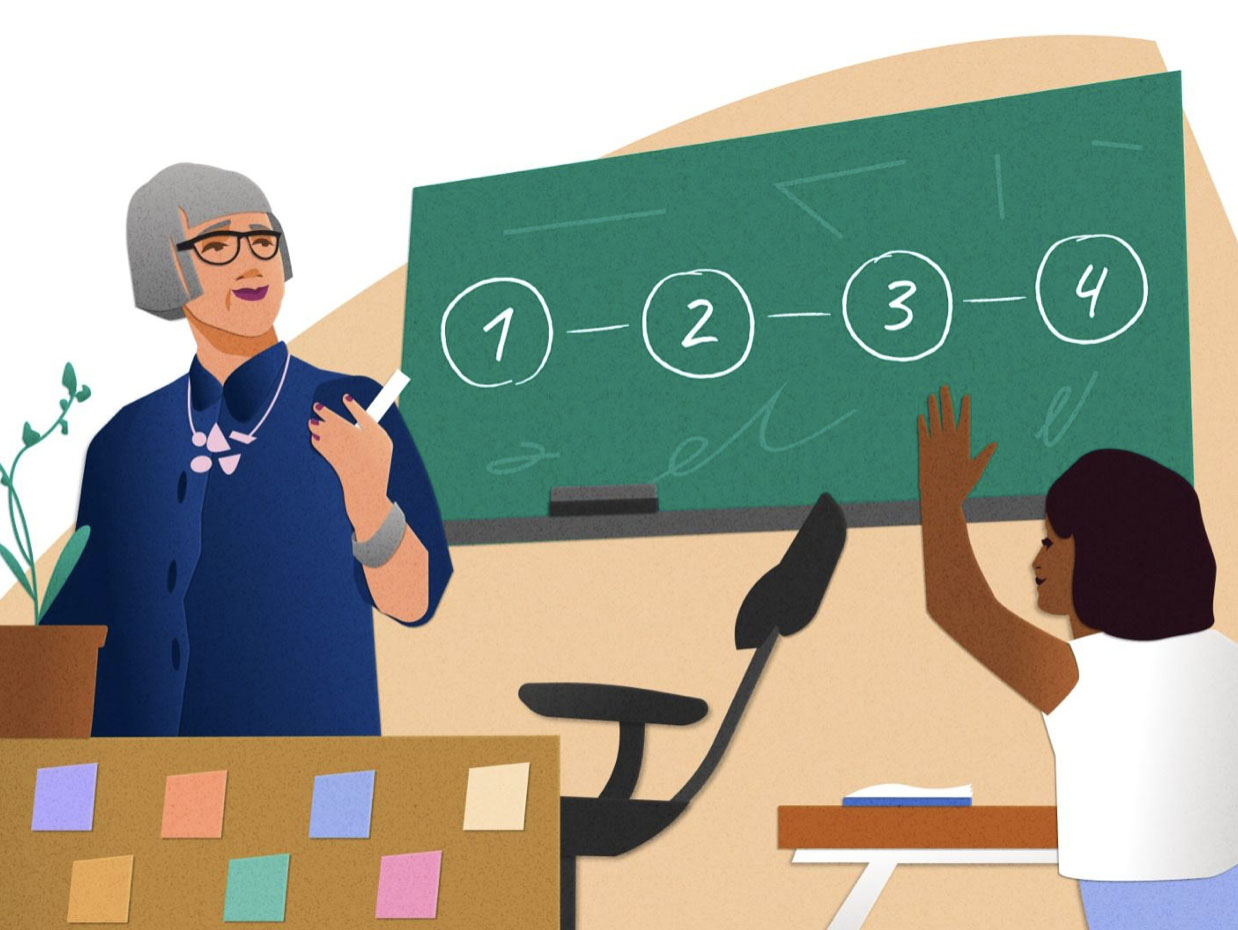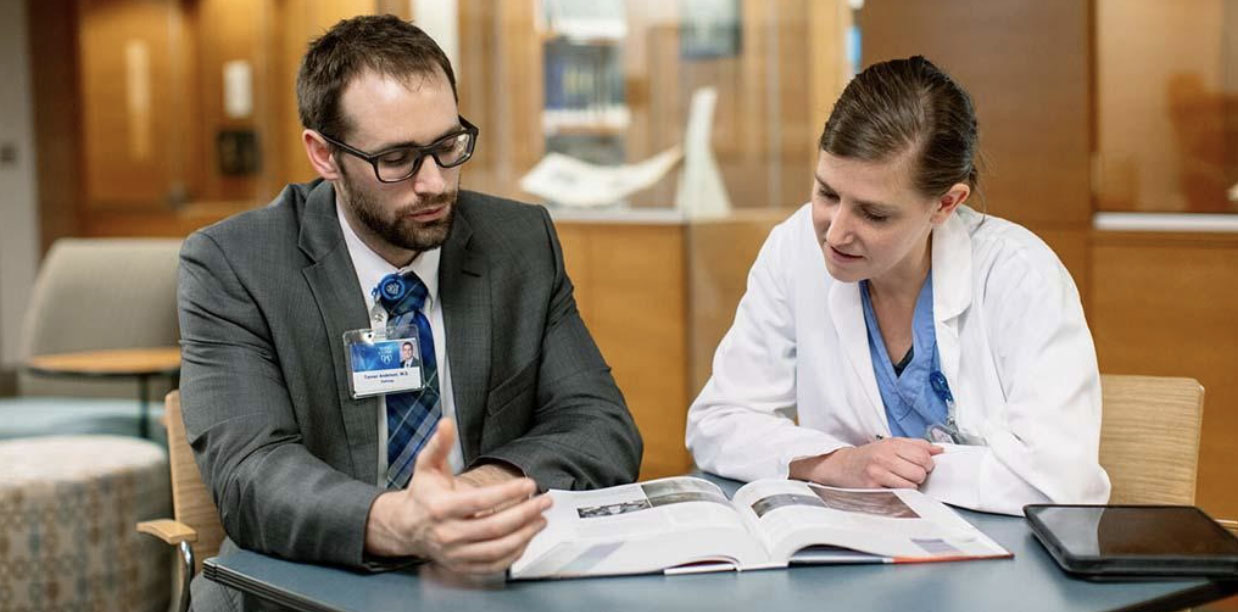
The function of a medical instructor is crucial. Medical tutors support prospective physicians and other healthcare professionals on their path to become competent practitioners by acting as mentors, guides, and facilitators. These instructors bear the burden of influencing the future of medical practitioners. But being a successful medical educator requires much more than just depth of knowledge and professional experience.
Let’s take a look at the characteristics that go beyond merely having subject-matter knowledge to become genuinely excellent teachers and mentors.
Compassion: The Bedrock of Medical Education
The core of medical education is compassion. A qualified medical tutor should have real compassion and understanding for the challenges and goals of their pupils. The path to becoming a doctor is difficult, and students may experience many difficulties and times when they doubt their abilities.
A caring tutor shows consistent support and encouragement while assuring their pupils that their commitment and diligence are appreciated.
A secure and open learning atmosphere where students feel comfortable expressing questions and seeking assistance without being afraid of being judged is fostered by compassion.
Effective Communication: Bridging the Knowledge Gap
A good medical teacher will be able to explain complicated medical topics in a manner that is both clear and understandable. For students, especially those who are still in the early phases of their school, the study of medicine can be intimidating.
A skilled tutor can simplify complex material into manageable chunks while adapting their teaching method to each student. They provide a collaborative learning environment by fostering conversation and active involvement in discussions.
Effective communication goes beyond the classroom as well; tutors should be accessible to students outside of scheduled class times to answer questions and offer helpful criticism.

Adaptability: Navigating the Ever-Changing Landscape
The discipline of medicine is one that is always evolving and making new discoveries. One needs to embrace adaptation in order to teach medicine effectively. When preparing students for obstacles in the real world, a tutor’s capacity to keep current with medical research, technology, and practices is essential. The teaching strategies must change as the field does.
A flexible tutor encourages innovation to improve the learning process, whether it is implementing interactive simulations or virtual reality into the curriculum.
Strong Ethical Values: Nurturing Ethical Practitioners
Strong ethical standards are the cornerstone of medicine. A qualified medical tutor instills in their students the value of ethical behavior in addition to medical expertise.
A medical profession will inevitably involve ethical challenges, therefore instructors should teach their students how to handle them with moral courage and empathy.
They must provide an ethical example for their students and act ethically in their own practice, motivating them to put the needs of patients first and uphold the highest professional standards.
Patience: Cultivating Growth at Every Pace
There are many obstacles on the way of becoming a medical professional, and not every student advances at the same rate. A superb medical tutor is kind and cognizant of the individual strengths and shortcomings of each student.
Just for your information, professional medical tutors can be found at Medic Mind. They don’t jump to conclusions or give up on pupils who are having trouble. Instead, they make the time and effort necessary to help each kid get better.
Students can become well-rounded medical practitioners thanks to patience, which is a significant tool for boosting confidence and competence.
Mentorship: Beyond Academic Tutoring
A truly outstanding medical tutor includes mentoring in addition to teaching. They are aware of the influence they may have on their pupils’ future professional and personal development. Tutors assist students in identifying their areas of strength and interest through mentoring, directing them toward appropriate research fields or specialties.
A mentor cultivates a feeling of community and motivation, fostering the development of the next generation of medical professionals who are not just knowledgeable but also compassionate in their treatment of patients.

Cultural Competence: Embracing Diversity in Medicine
Patients from various ethnic origins are encountered by medical practitioners. Cultural competency, or the capacity to comprehend, appreciate, and work successfully with people from many cultures, is a necessary qualification for a professional medical tutor.
The standard of healthcare that is provided is improved by teaching students about cultural sensitivity and the effects of cultural beliefs on patient care.
An inclusive learning environment is fostered by a tutor with cultural competence, enhancing the educational experience for all pupils.
Problem-Solving Skills: Fostering Critical Thinking
Strong problem-solving and critical thinking skills are required in medicine. A capable medical tutor challenges pupils to think outside the lines of textbooks and encourages them to independently assess challenging medical problems.
They push their pupils with case studies and make-believe scenarios, developing their capacity to make wise judgments and diagnoses. In the actual world of medicine, where rapid thinking and immediate action may save lives, problem-solving abilities are crucial.

What Is the Role of a Nursing Tutor?
While instructing others, registered nurses who simultaneously work as nursing tutors retain and develop their skills (if they continue to practice in a patient context).
Hospitals, universities, and teaching hospitals are just a few of the places where nursing instructors work. Many nursing instructors maintain their tutoring duties while also working as nurses.
The nursing tutor responsibilities include the following, as examples:
- University nursing courses are given by nursing professors. They could also work on academic assignments and research initiatives.
- Clinical nursing tutor, nurse tutor, and nurse practitioner are just a few of the positions in clinical nursing education.
- Nurses’ education advisors. They are in charge of creating the educational objectives and standards for nursing school and program students.
- Nurse tutors who are nursing students. They provide instruction to students in a clinical laboratory setting.
Last Words
A qualified medical instructor possesses a wide range of skills that go beyond merely topic knowledge. The development of skilled and compassionate medical professionals is facilitated by compassion, effective communication, flexibility, strong ethical beliefs, patience, mentoring, cultural competency, and problem-solving abilities.
The difficult path of medical education can be facilitated by the supervision of a qualified medical tutor, who can help students become ready for the obstacles that lie ahead. Medical instructors will continue to play a crucial role in influencing healthcare for future generations as medical science develops.


